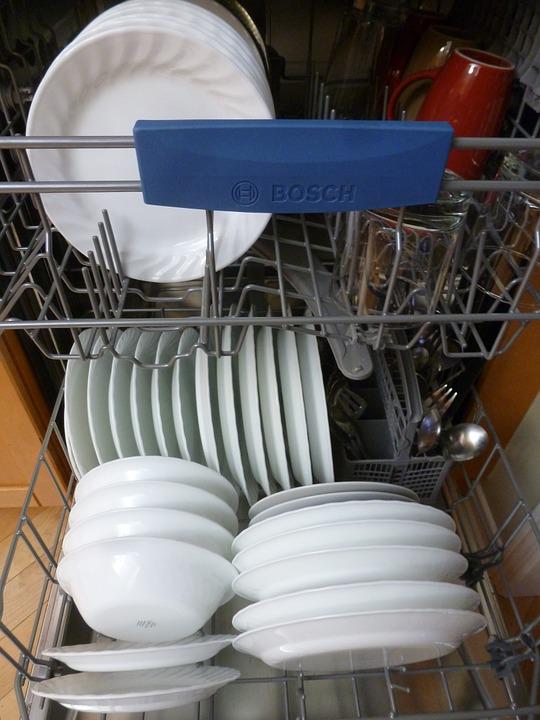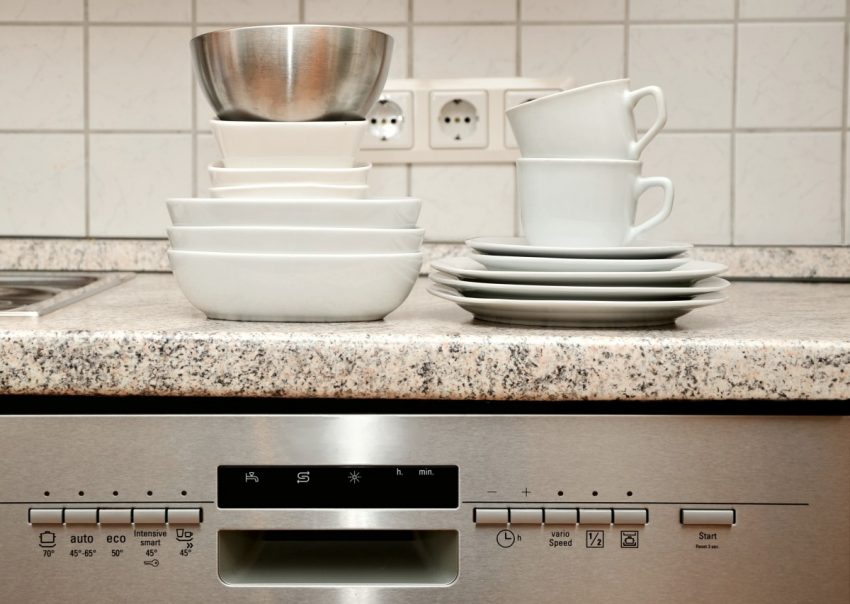Contents
Consumption of a dishwasher
Better manage the energy consumption of a dishwasher
Noise level of a dishwasher
Contrary to popular belief, a dishwasher saves time, water, and electricity compared to washing by hand. Contrary to what one might think at first glance, a good dishwasher is distinguished by its consumption control. Let’s see closer below.
Consumption of a dishwasher
A dishwasher is an electrical appliance that consumes much electricity, especially when heating the water. This consumption varies from 0.5 to 1.5 kWh, depending on the model.
A dishwasher also consumes a lot of water: between 10 and 20 liters depending on the model.
However, its use is much more economical than washing by hand:
Using a dishwasher represents a water-saving of about 8,000 liters per year or the equivalent of 130 showers.
Indeed, if a dishwasher’s water consumption varies from 10 to 20 liters per wash, a hand wash consumes 30 liters for a recent device.
Washing your dishes by hand will cost you $0.84 per wash, while the same dishes in a dishwasher will cost $0.38.
Knowing that a family does an average of 220 washes per year, at a rate of one round almost daily, the difference on your bill is not negligible!
Of course, this appliance is expensive and takes up a lot of space, but you will quickly get a return on your investment.
Better manage the energy consumption of a dishwasher.
Even if the dishwasher is more economical than a manual wash, it remains a big energy consumer. However, there are solutions to reduce this consumption.
Energy class of a dishwasher
An energy label is present on each appliance to help you choose a dishwasher.
A dishwasher displays its energy consumption with a letter from A to G, G being the most energy-consuming.
This standard allows you to orient your purchase according to the appliance’s performance and its noise level.
A dishwasher that uses a lot of electricity will cost less. But in the long run, buying a more economical dishwasher will considerably reduce your electricity bill.
Furthermore, each model’s technical data sheet reports the washing and drying efficiency, always in the form of a letter from A to G.
Good to know: the energy consumption of a dishwasher can vary by 40%, depending on the model.
Note: As appliances have become increasingly efficient, the old energy efficiency rating scale for products is no longer consistent. The new label, which came into effect on March 1, 2021, uses the old colors from green to red and a scale from A to G. The intermediate categories (A+, A++, A+++) are removed.
Good to know: a former A+ is now equivalent to an F!
The economic programs

To control your consumption as closely as possible, some models offer various washing programs adapted to the types of dishes to be cleaned.
For example, you can have an economic or short washing program if your dishwasher is not full: the half-load option.
Depending on your region, you can reduce your bill by using the delayed start option to run your machine during off-peak hours (from 10:30 pm).
These two options help you avoid wasting water and energy.
Intelligent dishwashers
Some models offer incredible technical advances in terms of energy saving. The major brands are developing intelligent dishwashers that can detect the amount and degree of dirt in the dishes.
These machines can determine the appropriate program and temperature and use only the energy and water that are strictly necessary.
Of course, an intelligent dishwasher costs more at the time of purchase, but the investment will pay off in the long run.
Noise level of a dishwasher
Generally speaking, a dishwasher is started after dinner and, if possible, during off-peak hours, i.e., at night.
The noise level is an aspect to consider if you want to prevent disrupting your sleep or that of your children due to dishwashing noise.
A dishwasher is the least noisy major appliance: between 40 and 60 dB, which is 40% less than a vacuum cleaner. The quietest dishwashers, however, can reach 39 dB!
Of course, the fewer decibels a machine emits, the more it costs.
Important: a difference of only three decibels is enough to double the noise emitted by the machine!
Most of the time, the noise emitted by the appliance is that of the water splashing on the dishes. Therefore, the noise level of a dishwasher depends on its walls’ soundproofing.
It is therefore advisable to choose a polypropylene tank, as this material is a good insulator.
Good to know: for a low-end model, the noise level increases as the machine ages.

